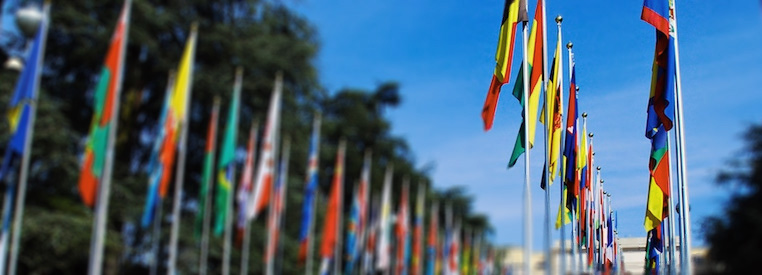Will the Obama team join the ICC?
Chibli Mallat, professor of international law at the Univeristy of Utah, seems optimistic about the Obama team’s approach to international law and justice. Mallat, who is also EU Jean Monnet Chair at Saint Joseph’s University in Lebanon, speculates the new administration is “set to reverse Bush isolationism”.
While re-engagement with the international community through such multilateral institutions as the United Nations may be true, the U.S. joining the ICC seems a reality yet far away. The implication of an ICC inquiry into NATO and American forces’ actions in Afghanistan was what led the Bush administration to rescind President Clinton’s signing of the Rome statute. And recently, the ICC prosecutor has made it known he was gathering information on possible war crimes committed by NATO soldiers and insurgents in the country. More here.
At the same time, there has been a steady stream of little signals that the new administration has been mulling ratification. Back in August, Clinton said it was a “great regret” that the U.S. was not yet a signatory to the ICC, signaling the strongest indication yet of improved U.S. cooperation.
Observers, including Mallat, have seized upon such statements. He points out in a Daily Star article on 7 October:
“The [administration of US President Barack Obama] is reportedly close to announcing a change in US policy toward the International Criminal Court (ICC), including affirming President Clinton’s 2000 signature on the Rome Statute and increasing US cooperation with the court,” Brett D. Schaefer and Steven Groves from the conservative Heritage Foundation said last week.
This would be the most important legal policy change so far by the new president, far more important than the closing of Guantanamo.
Such a step would be welcome. Contrary to the received notion that all Republicans oppose the ICC, a little-noted signal has come from the most respected jurist in the Republican camp: Sandra Day O’Connor, the first woman justice on the US Supreme Court, joined an American Society of International Law taskforce which recommended in March active collaboration with the ICC. [...]
More here.
A slightly different take from Howard LaFranchi of Christian Science Monitor, 12 September:
Ocampo notes that Afghanistan is an ICC signatory, so the court has “normal jurisdiction” there. Right now, he says, the court is simply assessing cases of “collateral damage” and alleged torture to see whether they warrant a full investigation. [...]
Court advocates note that by the end of his second term, President Bush was sounding more accepting of the court – especially after his own conclusion that “genocide” was occurring in Darfur. That warming trend has continued under the Obama team, with some court supporters expecting the administration to move toward joining the ICC.
“If they don’t,” says Richard Dicker, director of the International Justice Program at Human Rights Watch, “we will be on them like white on rice.” That desire to see the US inside the ICC could influence how the court approaches a case like Afghanistan, if achieving global representation is seen to be of greater long-term value than pressing ahead on prickly questions of justified soldier conduct. [...]
More here.
Comments
Leave a Reply
